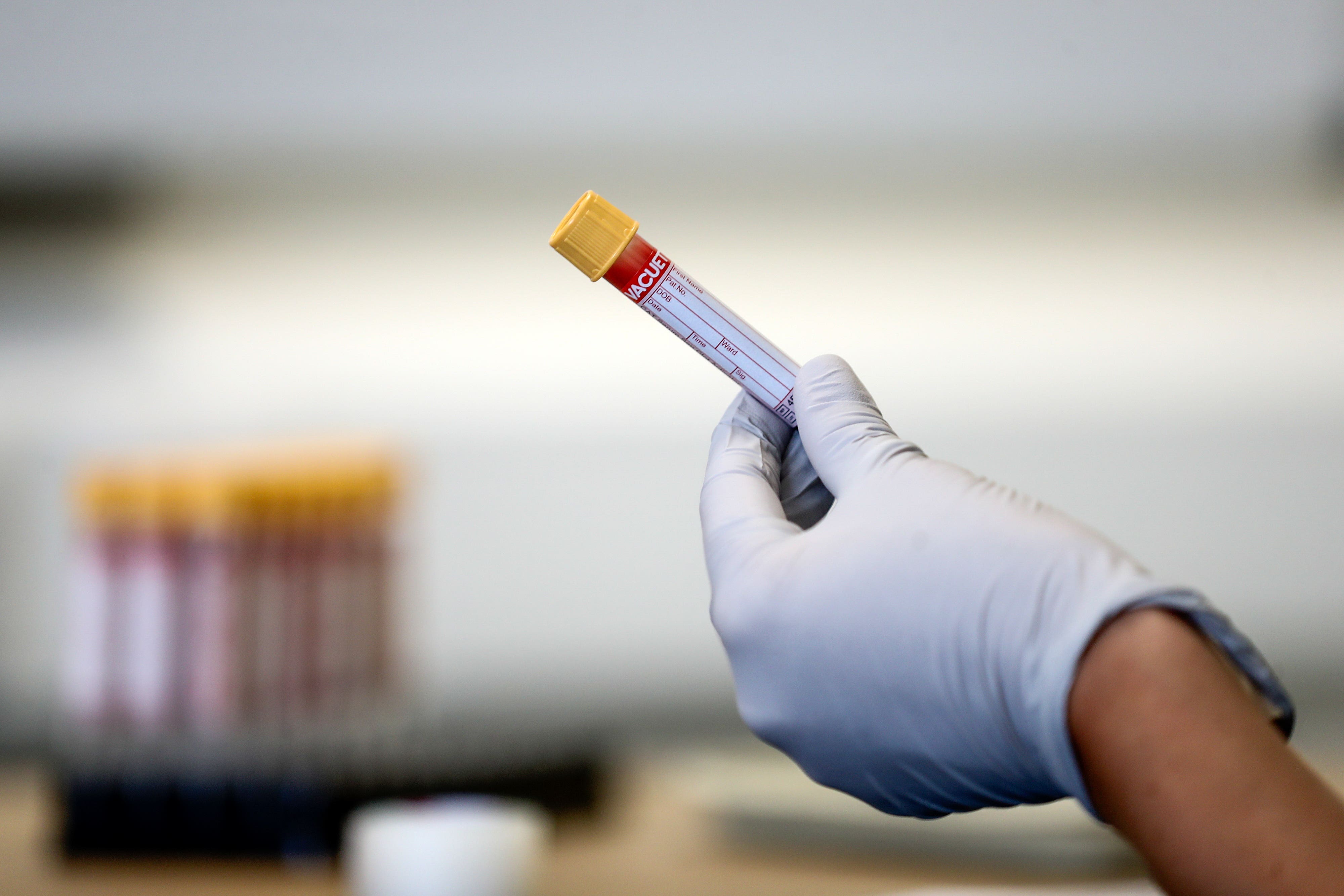Blood test could identify millions of people spreading tuberculosis unknowingly
TB kills more than one million people each year, according to the World Health Organisation.

Your support helps us to tell the story
From reproductive rights to climate change to Big Tech, The Independent is on the ground when the story is developing. Whether it's investigating the financials of Elon Musk's pro-Trump PAC or producing our latest documentary, 'The A Word', which shines a light on the American women fighting for reproductive rights, we know how important it is to parse out the facts from the messaging.
At such a critical moment in US history, we need reporters on the ground. Your donation allows us to keep sending journalists to speak to both sides of the story.
The Independent is trusted by Americans across the entire political spectrum. And unlike many other quality news outlets, we choose not to lock Americans out of our reporting and analysis with paywalls. We believe quality journalism should be available to everyone, paid for by those who can afford it.
Your support makes all the difference.Scientists say they are close to developing a blood test that could identify millions of people who spread tuberculosis unknowingly.
Researchers from the University of Southampton have discovered a group of biological markers that are found in high levels among infectious patients.
Tuberculosis, or TB, is the world’s deadliest infectious disease and kills more than one million people each year, according to World Health Organisation data.
The study, carried out with experts from the University of Cape Town in South Africa and Cayetano Heredia University in Lima, Peru, used a new technique that identified a set of six proteins that are highly accurate in pinpointing TB.
Lead author Dr Hannah Schiff, a respiratory expert at Southampton, said if successfully produced, a test could help identify the estimated three million cases which were missed last year, mostly in developing countries.
She said: “TB remains a global catastrophe because our efforts to control the spread are hindered by inadequate testing, which is slow and reliant on specialist equipment and labs.
“A third of people who get infected go undiagnosed and remain infectious.
“In our study, we combined a new measurement technique with deep mathematical analysis to identify these six new markers of TB disease.
“It could lead to a transformative alternative to diagnosing the condition – a simple test that detects proteins in the bloodstream whose levels differ between people with TB, healthy individuals and those suffering from other respiratory illnesses.”
She explained that TB spreads through inhaling tiny droplets from coughs or sneezes of infected people and while it mostly affects the lungs, it can devastate any part of the body.
The new markers we discovered are truly exciting but the important work now is to develop these into tests that can be used for the millions of people who are transmitting TB without knowing it
Cases in the UK increased to around 5,000 last year and are expected to continue rising in 2024, according to the UK Health Security Agency.
The study published in the Journal of Clinical Investigation Insight in time for World TB day on March 24 involved an examination of proteins found in the blood of people with active TB in Africa and South America.
The scientists compared the biomarkers to those found in healthy people and patients with lung infections, identifying 118 proteins that differed significantly between the groups.
The experts then narrowed these down to the six proteins that, they say, can be used to distinguish contagious patients with TB from people in good health or with lung conditions.
Study co-director Dr Diana Garay-Baquero, also from Southampton, said the findings were a roadmap to developing a TB test that would be as simple as the lateral flows used during the Covid-19 pandemic.
She said: “The new markers we discovered are truly exciting but the important work now is to develop these into tests that can be used for the millions of people who are transmitting TB without knowing it.
“As the Covid-19 pandemic confirmed, we ignore highly infectious airborne diseases at our peril.”